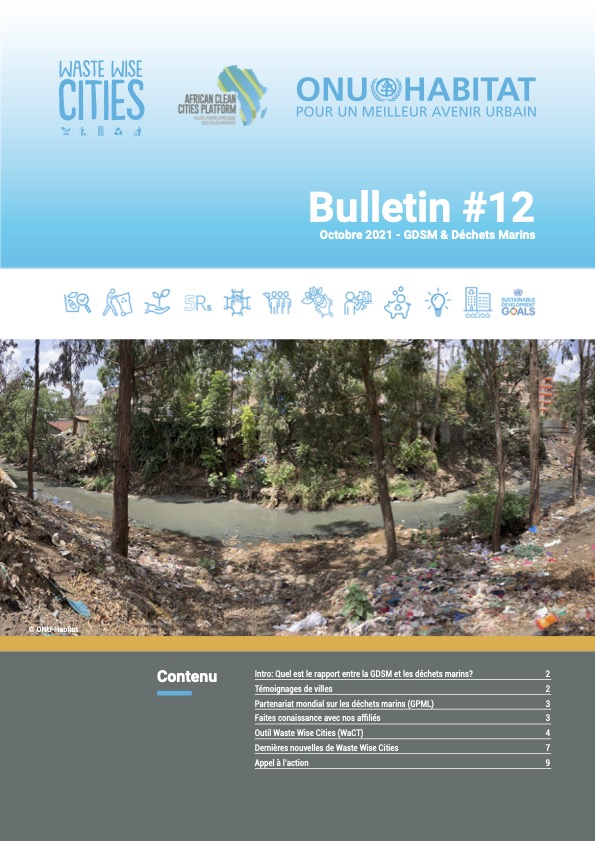Location
UN-Habitat is the United Nations programme working towards a better urban future.
Its mission is to promote socially and environmentally sustainable human settlements development and the achievement of adequate shelter for all. Cities are facing unprecedented demographic, environmental, economic, social and spatial challenges. There has been a phenomenal shift towards urbanization, with 6 out of every 10 people in the world expected to reside in urban areas by 2030. Over 90 per cent of this growth will take place in Africa, Asia, Latin America, and the Caribbean. In the absence of effective urban planning, the consequences of this rapid urbanization will be dramatic. In many places around the world, the effects can already be felt: lack of proper housing and growth of slums, inadequate and out-dated infrastructure – be it roads, public transport, water, sanitation, or electricity – escalating poverty and unemployment, safety and crime problems, pollution and health issues, as well as poorly managed natural or man-made disasters and other catastrophes due to the effects of climate change. Mindsets, policies, and approaches towards urbanization need to change in order for the growth of cities and urban areas to be turned into opportunities that will leave nobody behind. UN-Habitat, the United Nations programme for human settlements, is at the helm of that change, assuming a natural leadership and catalytic role in urban matters. Mandated by the UN General Assembly in 1978 to address the issues of urban growth, it is a knowledgeable institution on urban development processes, and understands the aspirations of cities and their residents. For close to forty years, UN-Habitat has been working in human settlements throughout the world, focusing on building a brighter future for villages, towns, and cities of all sizes. Because of these four decades of extensive experience, from the highest levels of policy to a range of specific technical issues, UN-Habitat has gained a unique and a universally acknowledged expertise in all things urban. This has placed UN-Habitat in the best position to provide answers and achievable solutions to the current challenges faced by our cities. UN-Habitat is capitalizing on its experience and position to work with partners in order to formulate the urban vision of tomorrow. It works to ensure that cities become inclusive and affordable drivers of economic growth and social development.
Members:
Resources
Displaying 6 - 10 of 224Land, Women Empowerment and Socioeconomic Development in the Arab Region. Evidence-based perspectives
There is a correlation between socio-economic development, human rights and the empowerment of men and women to participate at all levels of decision making. Secure land rights are an important precondition for the achievement of these goals, including and the realisation of a broad spectrum of human rights: adequate housing, equality, food, health, work and education.
Land Degradation and Conflict: Case studies from Sudan, Jordan and Niger
Avoiding, reducing and reversing land degradation is essential for the food security of current and future generations, for the conservation of biodiversity and the achievement of climate targets. In the current context of increased competition over land resources, rising food insecurity, and inequalities, combating land degradation is also necessary to prevent and mitigate conflict and mass displacement, which risk to destabilise countries and entire regions.
Learn how to measure SDG Indicator 11.1.1 – Adequate Housing and Slum Upgrading
This course includes self-paced e-learning training modules which present descriptive and practical step-by-step guidance on how to compute SDG 11+ indicators. It is aimed at strengthening national and city capacities in collecting, analyzing, and monitoring the urban SDG indicators.
This training course is intended for all the professionals involved in monitoring and reporting on SDG 11 indicators and anyone who wishes to get guidance in the monitoring process.
WOMEN, LAND AND PEACE
These messages were developed based on the field experience in fragile and crisis affected contexts of UN-Habitat and the partners of the Global Land Tool Network and the HLP Area of Responsibility of the Global Protection Cluster. They are a quick reference on how to empower women and protect their housing, land and property rights in fragile and crisis affected contexts and why this is an essential element to sustain peace and stability.
Bulletin #12 ONU Habitat
Les déchets marins constituent une grave menace pour les océans, la faune et la flore sauvages ainsi que pour la santé humaine. Plus de 800 espèces de vie marine souffrent de ses effets néfastes tels que le blocage de la digestion et l’enchevêtrement. Les déchets marins peuvent également avoir de graves conséquences sur les activités économiques telles que la pêche et le tourisme.



